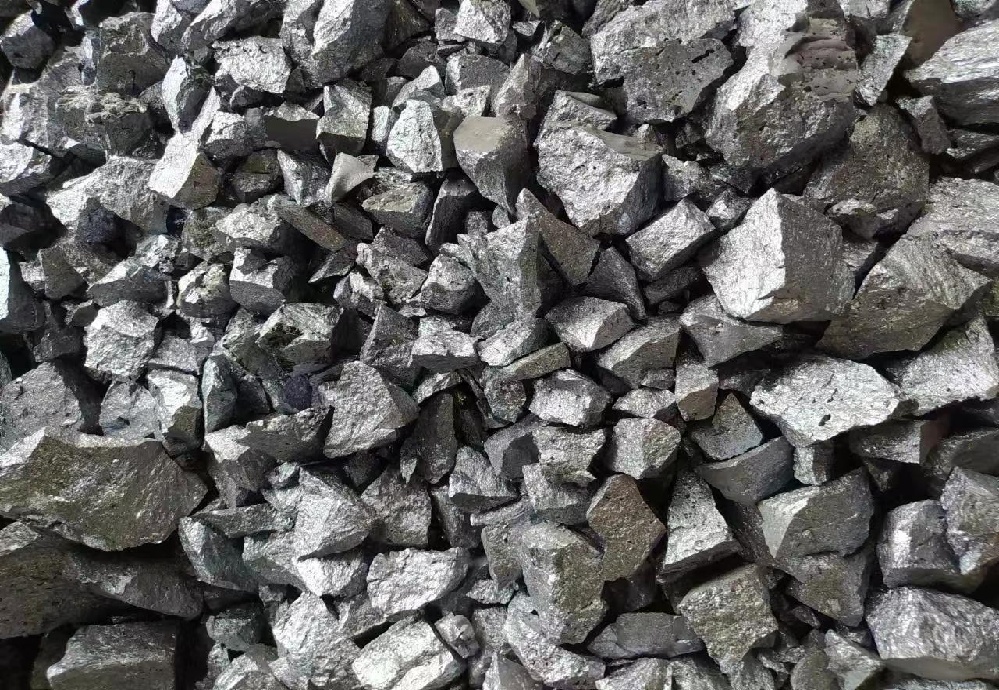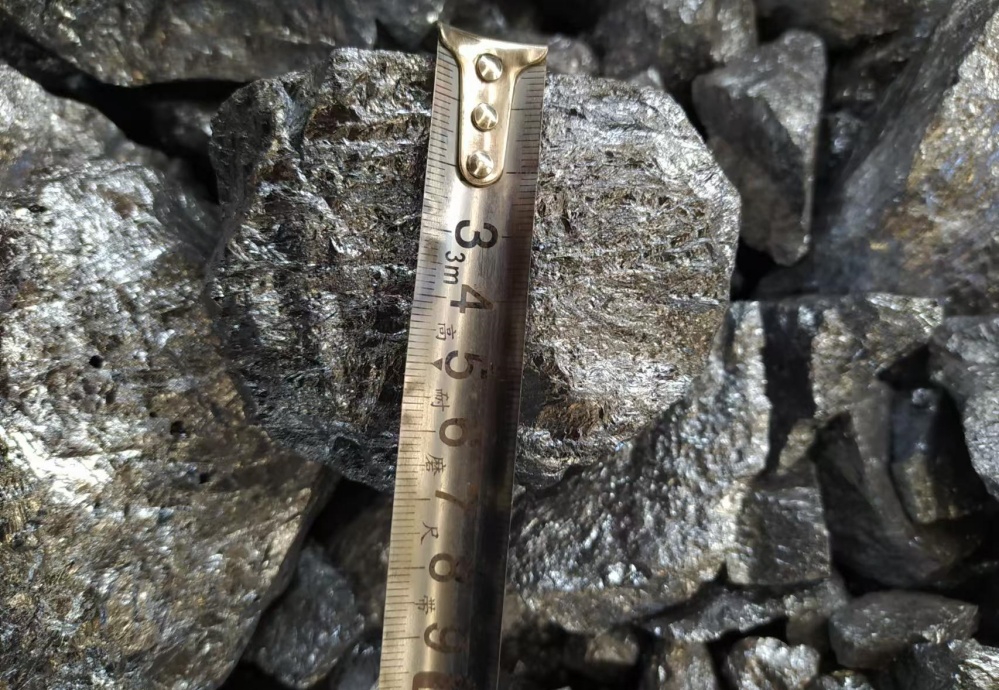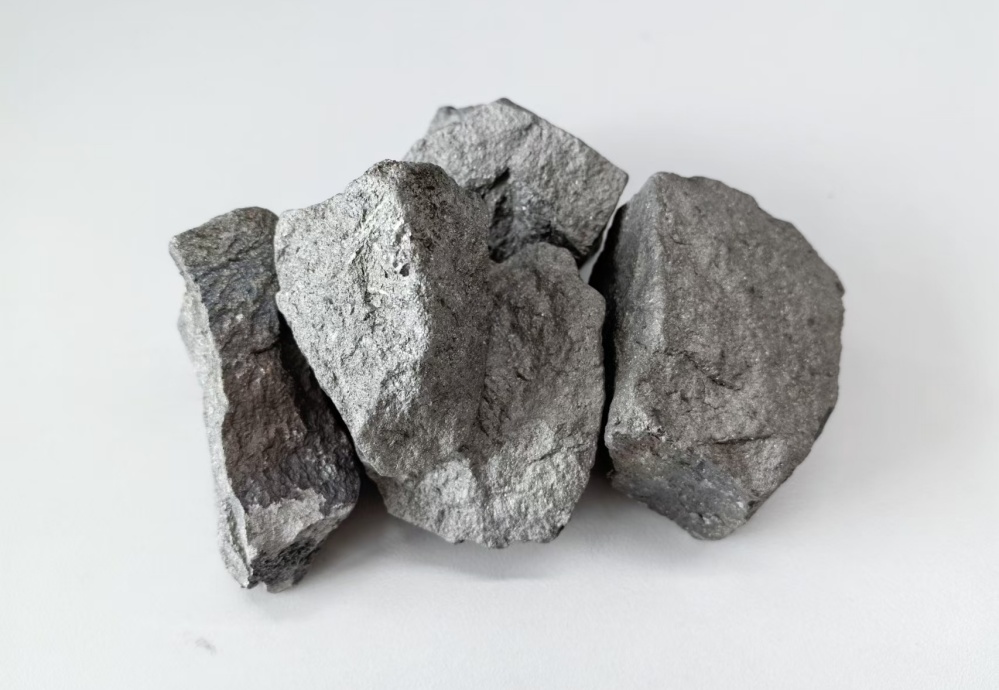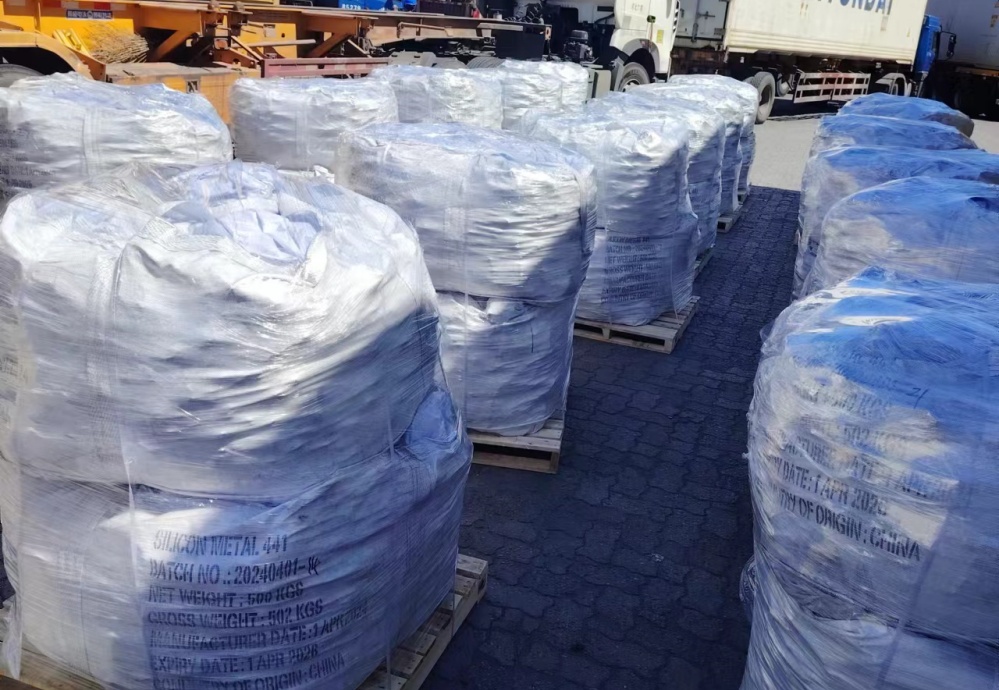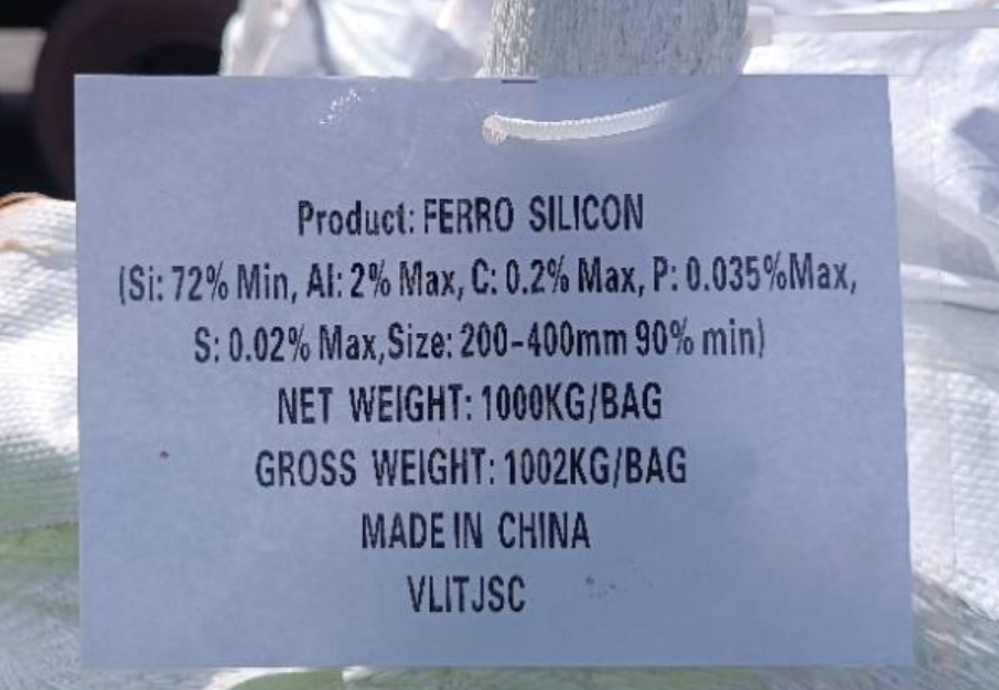Ferrosilicon
Ferrosilicon is an alloy composed primarily of iron (Fe) and silicon (Si), along with smaller amounts of other elements such as manganese and aluminum. It is typically produced by reducing silica (SiO2) with coke (carbon) in an electric arc furnace.
Here are some of the key applications of ferrosilicon:
Deoxidizer in Steelmaking: Ferrosilicon is commonly used as a deoxidizing agent in the production of steel. It helps remove oxygen from molten steel, which improves the quality of the final steel product.
Inoculant in Cast Iron Production: In the manufacturing of cast iron, ferrosilicon is added as an inoculant to promote the formation of graphite in the cast metal, enhancing its properties and reducing the likelihood of casting defects.
Alloying Agent: Ferrosilicon is used as an alloying agent in the production of various alloys, including stainless steel, nickel-based alloys, and other specialty alloys. It helps impart desirable properties such as corrosion resistance and heat resistance.
Ferrosilicon Powder in Welding: Finely ground ferrosilicon powder is used in the welding industry to improve the quality of welds, reduce porosity, and control the cooling rate of the weld.
Magnesium Ferrosilicon for Nodular Cast Iron: A variant known as magnesium ferrosilicon is used in the production of nodular or ductile cast iron, which has improved strength and ductility compared to traditional cast iron.
Ferrosilicon in Foundry Applications: It is used as a source of silicon in foundries to improve the quality and properties of various cast metals.
Chemical Industry: Ferrosilicon finds applications in the chemical industry for producing various chemicals and compounds.
Ferrosilicon's ability to control the silicon content in various alloys and its deoxidizing properties make it a valuable material in a wide range of industrial processes, particularly in the metallurgical and steel industries.![]()

